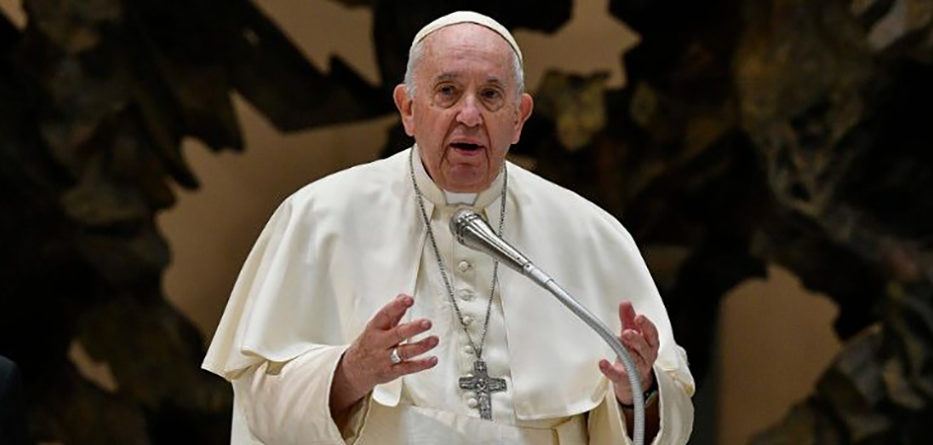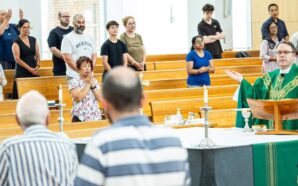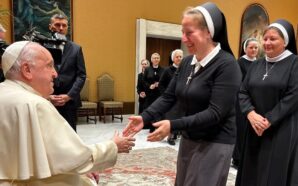In continuing his catechesis series on the theme of discernment at the weekly General Audience, Pope Francis stressed that discernment happens even when we don’t plan it, and that through it we feel God’s “irresistible” love.
In his continuing catechesis on the theme of discernment, Pope Francis picked up the topic once again during his General Audience on Wednesday 21 December, noting that anyone who may have followed until this point might be thinking “what a complicated practice discernment is!”
Pope Francis responded to this possible confusion by saying that “in reality, it is life that is complicated and, if we do not learn how to read it, we risk wasting our lives, living it with strategies that end up disheartening us.”
Discernment is constant
Pope Francis recalled the first catechesis in which he considered that each of us is constantly discerning simple things, such as “whether we want to do something or not,” he added.
“Life always presents choices to us,” explained the Pope, “and if we do not make conscious choices, in the end it is life that chooses for us, taking us where we do not want to go.”
Discernment is never done alone
Discernment, however, continued the Holy Father, “is not done alone”, and with this in mind he focused the day’s catechesis on several pointers that can help “facilitate this indispensable exercise of the spiritual life.”
He began by noting that one of the first indispensable aids is evaluating with the Word of God and the doctrine of the Church.
“They help us read what is stirring in our hearts, learning to recognise God’s voice and to distinguish it from other voices that seem to vie for our attention, but leave us confused in the end,” explained the Pope, adding that God’s voice does not impose itself. “It is discreet, respectful, and, for that reason, produces peace. And it is only in peace that we can enter profoundly into ourselves and recognize the authentic desires the Lord has placed in our hearts.”
For the believer, continued the Pope, “the Word of God is not simply a text to read” but rather “it is a living presence” and this affective relationship with Scripture leads us to experience an affective relationship with the Lord Jesus.
This, the Pope stated, “is another indispensable aid that is not to be taken for granted.”
Pope Francis went on to explain that we can often have a distorted idea about God, thinking of him as a sullen, harsh judge, ready to catch us in the act. “On the contrary, Jesus reveals a God who is full of compassion and tenderness for us, ready to sacrifice himself for us.”
The Lord as a friend
Pope Francis then went on to describe our life with the Lord as a relationship with a friend which grows day by day. “Friendship with God is able to change the heart,” he explained, whilst “piety is one of the great gifts of the Holy Spirit, which gives us the ability to recognize God’s fatherhood.”
“We have a tender, affectionate Father who loves us, who has always loved us. When we experience this, our heart melts and doubts, fears, feelings of unworthiness are dissolved. This love is irresistible.”
Recognise the salvation God is working in life
Bringing his catechesis to an end, Pope Francis noted that the Liturgy of the Hours opens the main moments of daily prayer with this invocation: “O God, come to my assistance. O Lord, make haste to help me”.
“Lord, help me!” because by myself I cannot move ahead, I cannot love, I cannot live…. “This invocation for salvation is the uncontainable request that flows from the depths of our being,” stressed the Pope, and the goal of discernment is to “recognize the salvation God is working in my life.”
“It reminds me that I am never alone and that, if I am struggling, it is because the stakes are high. With these aids the Lord gives to us, there is no need to be afraid.”
Read the Pope’s full catechesis from the General Audience on 21 December here.
With thanks to Vatican News and Francesca Merlo, where this article originally appeared.








